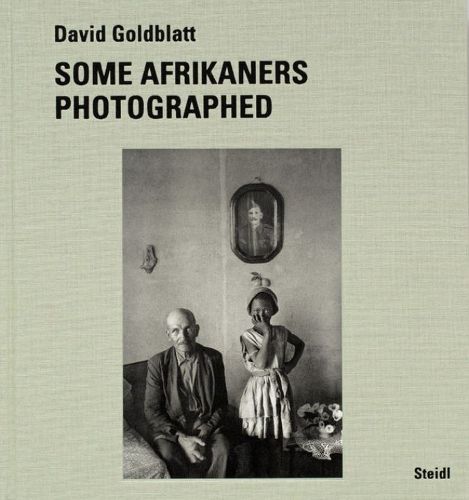David Goldblatt: Some Afrikaners Photographed
David Goldblatt

David Goldblatt: Some Afrikaners Photographed
David Goldblatt
Goldblatt began working on Some Afrikaners Photographed, first published in 1975, in 1963. He had sold his father’s clothing store where he worked, and become a full-time photographer. The ruling Afrikaner National Party-many of its leaders and members had supported the Nazis in the Second World War-was firming its grip on the country in the face of black resistance. Yet Goldblatt was drawn not to the events of the time but to the quiet and commonplace where nothing ‘happened’ and yet all was contained and immanent. Through these photos he explored his ambivalence towards the Afrikaners he knew from his father’s store. Most, he guessed, were National Party voters, yet he experienced them as austere, upright, unaffected people of rare generosity of spirit and earthy humor. Their potency and contradictions moved and disturbed him; their influence pervaded his life.
The book includes an essay by South African writer Antjie Krog: Three kinds of Afrikaners look out at us from these photographs, she writes, of which the poor Afrikaner is the most haunting-the simple one who, by the sweat of his brow, eats his bread in isolation.
Art critic Ivor Powell charts the outraged reaction of the Afrikaner media towards photos that showed rural Afrikaners at a time when the Afrikaner elite was trying to establish itself on the international stage, as well as his own reaction to the original book: It was all but incandescent with tension and revelation, with a sense of souls being held up to scrutiny, of skins being peeled away.
An old man sits for me. A black child comes and stands next to him, looking at me with curiosity. The man turns and says to the child, Yes, what are you doing here, you black rubbish? -the insult meant and yet said with affection. How is this possible? I don’t know. But the contradiction was eloquent of much that I found in the relationship between rural and working-class Afrikaners and their black workers: an often comfortable, affectionate, even physical intimacy seldom seen in the liberal circles in which I moved, and yet, simultaneously, a deep contempt and fear of black people. David Goldblatt
This item is not currently in-stock. It can be ordered online and is expected to ship in 5-9 days
Our stock data is updated periodically, and availability may change throughout the day for in-demand items. Please call the relevant shop for the most current stock information. Prices are subject to change without notice.
Sign in or become a Readings Member to add this title to a wishlist.


